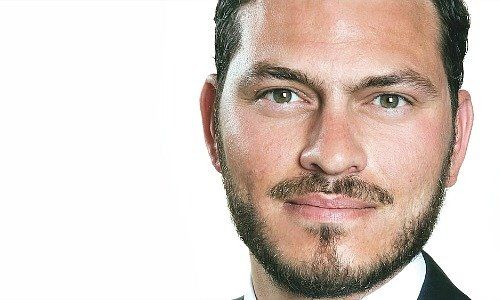Oman doesn’t possess the same oil and capital reserves as its far wealthier neighbors, and has been hit disproportionately by a drop in the price of oil in recent years, Kinan Khadam-Al-Jame writes for finews.first.
finews.first is a forum for renowned authors specialized on economic and financial topics. The texts are published in both German and English. The publishers of finews.com are responsible for the selection.
The Sultanate of Oman has been governed by Sultan Qaboos bin Said Al Said since 1970. The Sultan is hugely popular and the country has seen steady improvements in human development under his reign. Being an absolute monarchy, executive powers are concentrated between the hands of the Sultan, with little place for sovereign institutions in decision-making.
The Sultan has reportedly faced heath concerns over the past few years, but has no publicly appointed successor. This poses risks to the predictability, sustainability and continuity of policymaking.
Since June 2014, Oman’s economy and public finances have suffered significantly from low oil prices. The country lacks the ample oil and fiscal reserves of its wealthy neighbours and its finances have been hit hard since the oil glut.
«The Omani economy lacks diversification»
With economic growth slowing, Oman now faces a twin deficit (fiscal deficit and current account deficit). This situation is the consequence of higher government spending compared to revenues coupled with higher imports than exports.
The 2016 budget was based on an oil price assumption of $45 a barrel; however, partly because oil averaged $39 last year, the deficit came in much higher than expected at about $13.7 billion. Moving forward, other than restructuring the high dependency on oil through economic diversification, the country is planning to sell stakes in a string of state-owned companies over the coming years.
The Omani economy lacks diversification and is largely reliant on hydrocarbons. Nonetheless, the government is planning to diversify through its Tanfeedh initiative, which was recently launched in collaboration with the Malaysian government.
«Oman’s currency has been pegged to the dollar for nearly three decades»
The aim is to boost investment opportunities for the private sector in specific areas such as tourism, manufacturing, transportation, logistics, mining and fisheries, to eventually increase its contribution to economic growth, diversification and employment.
Oman’s currency has been pegged to the dollar for nearly three decades and the dollar peg has provided a credible anchor of stability, reducing transactions costs and simplifying the conduct of macroeconomic policy.
«To avoid unwanted volatility, the change need not be a sudden devaluation»
Admittedly, the roots of the liquidity and exchange rate pressures are the large fiscal deficits and rigidities in the product and labour markets. Hence, the policy focus at present should rightly be on ensuring that planned fiscal and structural reforms begin to yield results, in terms of improving the efficiency of resource allocation in the economy.
In this context, greater flexibility in the exchange rate could play an important role in supporting the reform process. To avoid unwanted volatility, the change need not be a sudden devaluation, but could take the form of a discrete shift to a basket of currencies, suitably structured to achieve, and then maintain competitiveness.
Kinan Khadam-Al-Jame is the Head of Investments & Portfolio Management at Reyl Finance (MEA) Ltd., a subsidiary of Swiss banking group Reyl, based in Geneva.
Previous contributions: Rudi Bogni, Peter Kurer, Oliver Berger, Rolf Banz, Dieter Ruloff, Samuel Gerber, Werner Vogt, Walter Wittmann, Alfred Mettler, Peter Hody, Robert Holzach, Craig Murray, David Zollinger, Arthur Bolliger, Beat Kappeler, Chris Rowe, Stefan Gerlach, Marc Lussy, Nuno Fernandes, Beat Wittmann, Richard Egger, Maurice Pedergnana, Didier Saint-George, Marco Bargel, Steve Hanke, Andreas Britt, Urs Schoettli, Ursula Finsterwald, Stefan Kreuzkamp, Katharina Bart, Oliver Bussmann, Michael Benz, Peter Hody, Albert Steck, Andreas Britt, Martin Dahinden, Thomas Fedier, Alfred Mettler, Frédéric Papp, Brigitte Strebel, Peter Hody, Mirjam Staub-Bisang, Guido Schilling, Claude Baumann, Adriano B. Lucatelli, Nicolas Roth, Thorsten Polleit, Kim Iskyan, Dan Steinbock, Stephen Dover, Denise Kenyon-Rouvinez, Christian Dreyer und Peter Kurer.



































